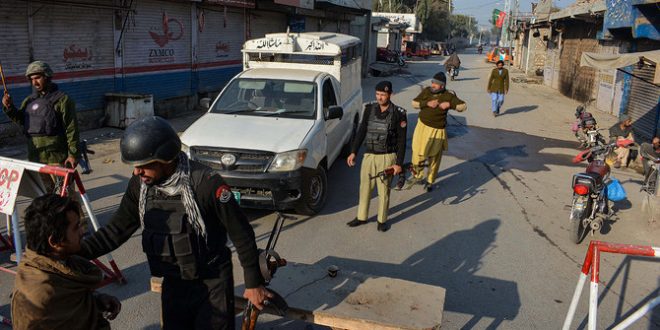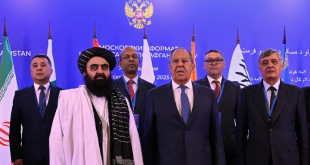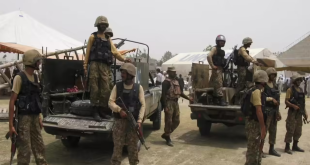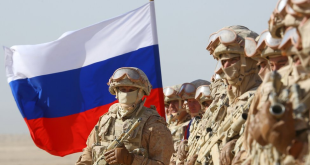KABUL – A surge in militant violence across northwestern Pakistan has left at least eight people dead, including five security personnel and three civilians, in a series of coordinated attacks that officials suspect were carried out by insurgents with links to groups operating along the Afghanistan border.
The assaults — striking the volatile districts of Karak, Peshawar, and Lakki Marwat in Khyber Pakhtunkhwa province — underscore a worsening security crisis in a region that has long served as a flashpoint in Pakistan’s fight against militancy.
In Karak, militants ambushed a vehicle carrying paramilitary Frontier Corps troops, killing three soldiers and their driver, according to Interior Minister Mohsin Naqvi. Hours later, attackers in Peshawar targeted a police vehicle, fatally shooting three individuals, including senior officer Inspector Ali Hussain.
A third incident in Lakki Marwat saw Frontier Corps staffer Attaullah gunned down while on leave, in what appears to be a targeted killing by unidentified assailants.
These attacks come amid a sharp escalation in violence in Pakistan’s tribal belt bordering Afghanistan. According to the Pakistan Institute for Conflict and Security Studies (PICSS), the country witnessed 82 militant attacks in July alone, resulting in 215 deaths, including 37 security personnel, 124 militants, and 54 civilians. Over 199 others were injured, many of them civilians caught in the crossfire.
Pakistan’s government continues to accuse Afghanistan’s Taliban regime of harboring militants from the outlawed Tehreek-e-Taliban Pakistan (TTP) — a coalition of extremist groups responsible for scores of deadly attacks inside Pakistan. Officials allege that TTP fighters routinely cross into Pakistan to launch assaults and then retreat back into Afghanistan.
Afghan authorities reject these claims, insisting they are committed to preventing their territory from being used for cross-border terrorism. However, Western analysts warn that the Taliban’s tenuous control over some border regions may be allowing militant safe havens to flourish unchecked.
The escalating violence poses a serious challenge not only for Pakistan’s internal security but also for regional stability, as both Islamabad and Kabul face growing pressure to curb transnational extremist activity.
With the resurgence of insurgent violence, concerns are mounting over the safety of civilians, the erosion of hard-won gains in counterterrorism, and the potential spillover effects into neighboring regions. The international community, particularly Western allies with counterterrorism interests in South Asia, are watching closely as the crisis deepens.
 Afghanistan Times Latest News and Analysis from Afghanistan and the Region
Afghanistan Times Latest News and Analysis from Afghanistan and the Region




